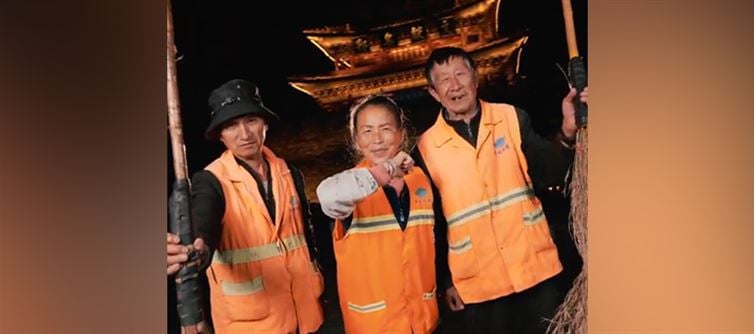
🧹 INTRODUCTION: THE ARTISTS OF THE STREETS
On october 27th, china paused to salute its unsung heroes — the sanitation workers, celebrating the 38th Sanitation Workers’ Day. Across provinces, banners went up, mayors gave speeches, and communities expressed gratitude to those who keep their cities clean and livable.
Meanwhile, in india, sanitation workers — the very backbone of public hygiene — continue to face indignity, discrimination, and death. In one country, they’re called “artists of the streets.” In another, they’re still “untouchables.”
CHINA’S CLEANERS: HONORED, PROTECTED, AND SUPPORTED
In china, being a sanitation worker is no longer a symbol of social invisibility. The government, in recent years, has introduced policies to raise salaries, improve housing, and provide safety gear.
Average annual income: 66,000–97,000 CNY ($9,300–$13,650 USD)
Work week: Standard 40 hours, often extending to 44–48 hours with overtime pay
Government benefits: health insurance, social security, and city-level awards on Sanitation Workers’ Day
While they still face housing challenges — unable to afford million-yuan apartments in urban centers — they are treated with dignity, seen as vital contributors to urban life. Migrant workers often receive government-subsidized housing, and municipalities regularly host public appreciation events.
In Chinese media, these workers are portrayed as community heroes, not as outcasts.
INDIA’S SANITATION WORKERS: THE NATION’S INVISIBLE HANDS
Contrast that with india, where sanitation work remains one of the most stigmatised, dangerous, and caste-bound occupations.
Despite constitutional safeguards, manual scavenging and caste-based exclusion persist. Many workers clean toxic sewers without proper gloves or oxygen masks. In some rural belts, they are still offered water in separate glasses, a cruel echo of centuries-old untouchability.
A 2023 study by Dalberg revealed that one sanitation worker dies every five days cleaning sewers or septic tanks in India. Safety gear is often missing, wages are delayed, and most workers lack social security.
🧴 WATER IN A DIFFERENT GLASS: A SYMBOL OF INDIA’S UNFINISHED FREEDOM
Nothing illustrates India’s moral failure more vividly than the separate glass of water. It’s not just about discrimination — it’s a symbol of exclusion, of centuries of caste prejudice that the modern republic has refused to truly confront.
In many villages, sanitation workers are asked to bring their own utensils when visiting upper-caste homes. In government offices, some still sit apart during meals. The Constitution banned untouchability in 1950 — but the mindset remains unabolished.
💰 THE VALUE OF DIGNITY: COMPARING SALARIES AND STATUS
| Metric | China | India |
|---|---|---|
| Average Annual Pay | ₹7.7–11.3 lakh | ₹1.2–2.4 lakh |
| Safety Equipment | Mandatory | Often missing |
| Public Recognition | Annual National Day | None |
| Caste Barriers | None officially | Deeply entrenched |
| Unionization | Active local collectives | Rare, discouraged |
The comparison is painful — but necessary. While china sees its sanitation workforce as part of the city’s pride, india still sees theirs as expendable.
🚨 A SYSTEM THAT VALUES CLEAN CITIES, NOT CLEANERS
The indian state loves to boast about “Swachh Bharat.” Yet, the very people who make that dream possible remain excluded from its promise. Politicians cut ribbons at cleanliness drives — but won’t shake hands with those holding the brooms.
Swachh Bharat’s glossy campaigns hide a darker truth: clean streets at the cost of dirty consciences.
🌏 A TALE OF TWO CONSCIENCES
China’s 38th Sanitation Workers’ Day was not just a ceremony — it was a reminder that respect and dignity are as essential as food and shelter.
india, the world’s largest democracy, has failed to grant that same dignity to its own people. Until the day a sanitation worker in india can drink from the same glass as everyone else, we remain an unequal nation — clean streets built on filthy hypocrisy.




 click and follow Indiaherald WhatsApp channel
click and follow Indiaherald WhatsApp channel